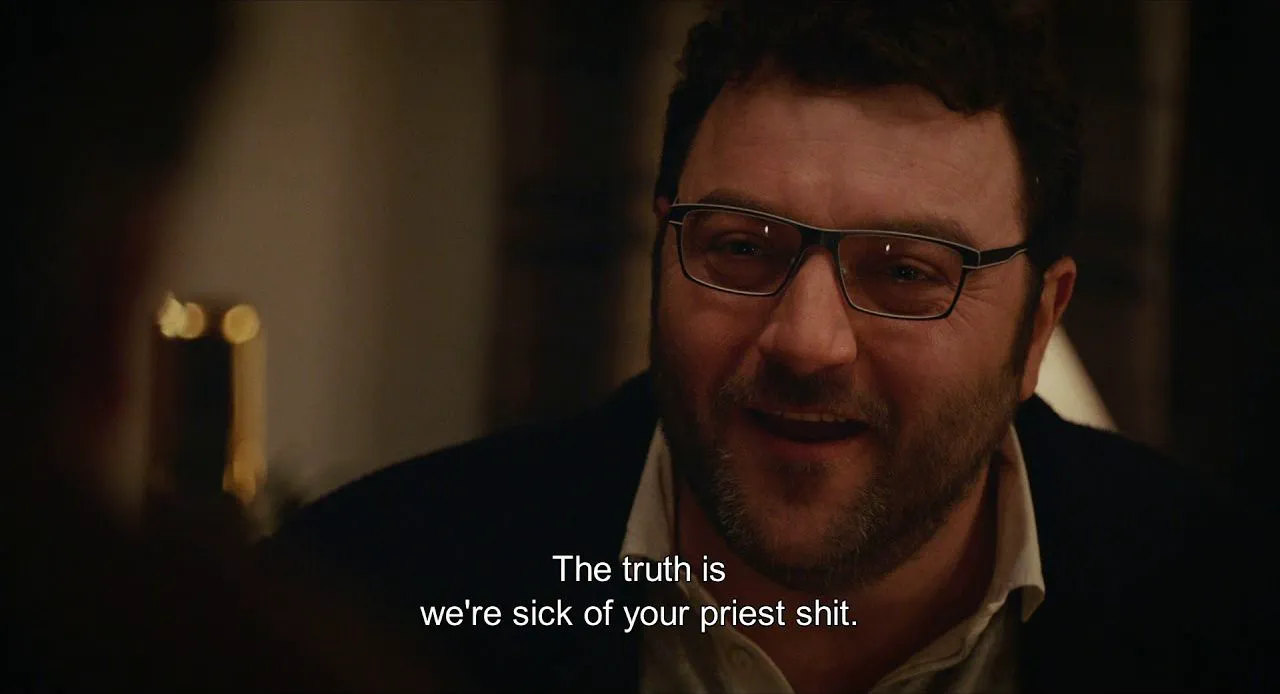By the Grace of God: A Disappointingly Detached Take on a Vital Issue
François Ozon’s “By the Grace of God” tackles the sensitive subject of pedophilia within the Catholic Church. However, the film’s overly academic and detached approach ultimately undermines its potential impact.
The story centers on Alexandre, a devout man who discovers that Father Bernard Preynat, the priest who abused him as a child, is still working with children. He attempts to report the situation to church officials, but his pleas are met with empty promises and bureaucratic indifference. Preynat himself offers a semblance of remorse but insists he is also a victim, a sick man. Frustrated by the lack of action, Alexandre joins forces with François and Gilles, two other victims, to expose Preynat and those who enabled his crimes.

The combination of François Ozon and the theme of pedophilia in the Catholic Church immediately conjures certain expectations. One anticipates a provocative, perhaps even transgressive, exploration of the issue. However, Ozon surprisingly opts for a restrained, almost clinical approach, reminiscent of the Oscar-winning “Spotlight,” a film whose poster subtly appears in “By the Grace of God.”

A Documentary Approach Gone Astray
This detachment may stem from the film’s initial conception as a documentary, aiming to expose a problem that is widely known but rarely addressed. While the project evolved into a narrative feature, it retained a documentary-like tone, structure, and a sense of authorial distance. “By the Grace of God” strives to present an objective account of events and individuals whose stories should resonate on their own.
However, this approach proves problematic in a narrative context. While the victims’ experiences are inherently powerful, they remain detached figures within the film’s controlled environment, engaging in lengthy and somewhat tedious discussions.

Emotional Distance
In “Spotlight,” the academic approach was justified by the journalists’ need to maintain objectivity. Ozon, however, places us among the victims, yet observes them from a distance, preventing both himself and the audience from fully experiencing their pain, anger, and long-held grievances. He deliberately avoids expressiveness, constructing the film from fragments of “real life” that are loosely connected by the narrative. Even in the most poignant moments, he refrains from getting too close to the characters. Despite the actors’ efforts, they remain mere mouthpieces for an anti-clerical message, a message that is justified but ultimately lifeless.
“By the Grace of God” ultimately feels like another cry in the void, a social poster reiterating what is already known. Despite its somber tone and journalistic ambitions, it is unlikely to be more effective than a crude joke or a satirical song about pedophile priests. Ozon tells the story of courageous individuals, but he himself lacks the same courage, seemingly hoping that the material will speak for itself and that he can emerge unscathed. In this case, a bit of emotional manipulation might have been beneficial.